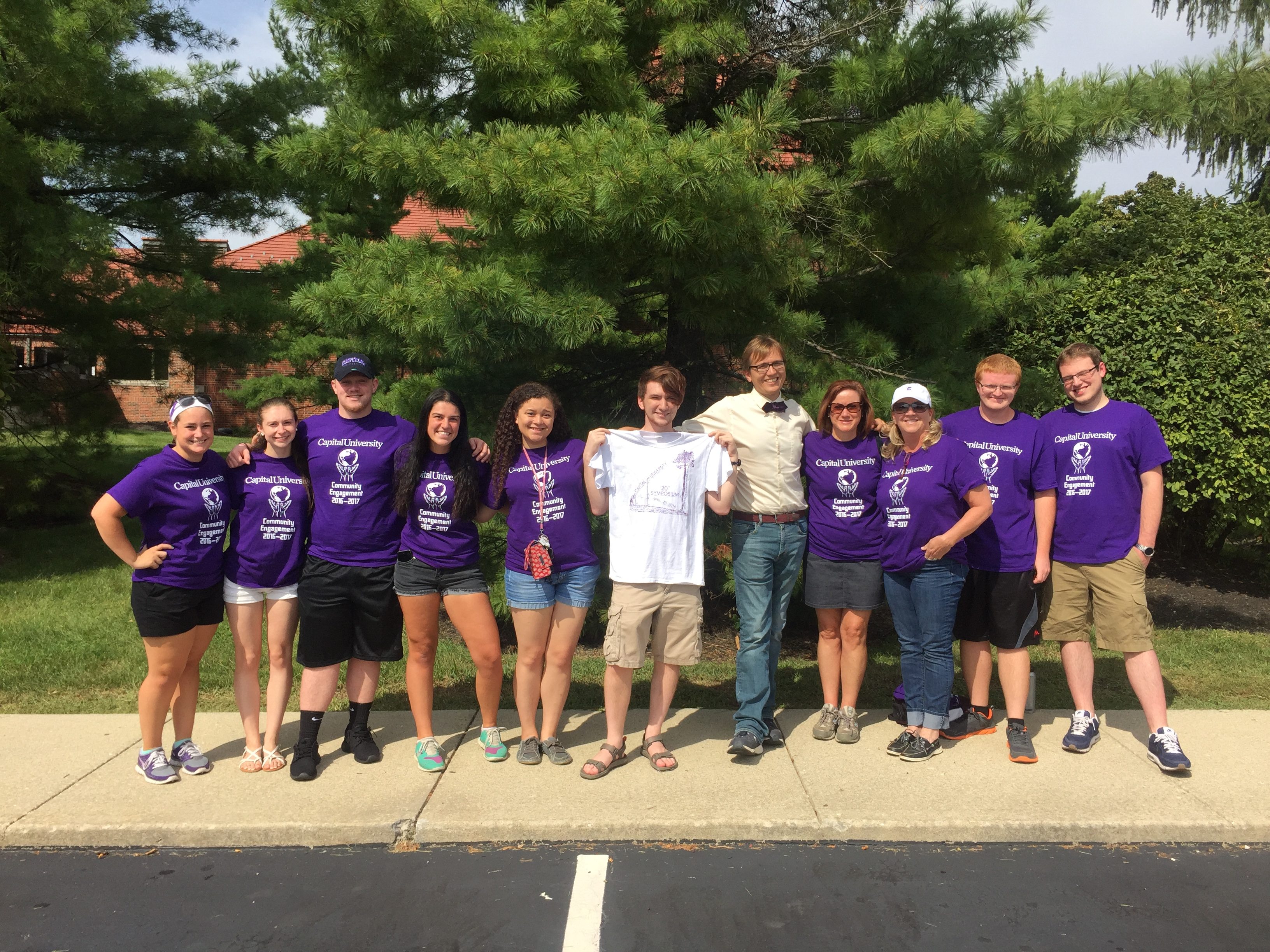During the course of the semester, the students of Professor Sherry Mong’s social problems class (SOC 330), and Nate Jackson’s ethics class (UC-410), will be working with a local community service organization of their choice and gaining hands-on experience helping disadvantaged citizens.
Receiving recommendations through a community organizer at the Center for Hope at First English Church, Mong and Jackson gave the students a host of organizations to volunteer with: the Salvation Army, Nationwide Children’s Hospital, police precincts, etc.
Each student had the opportunity to interview someone from the organizations that interested them before they made a decision, not only to confirm the things that interested them, but also to get a better understanding of exactly what the organizations need volunteers for.
As Jackson explained, effective community service requires more planning and precision than simply showing up somewhere and offering to help.
“In each of our classes, students are going to pick a local organization or group to interview and really get a sense of what opportunities there are, what assets, what they need volunteers for…things like that,” Jackson said. “And the goal there is to get a handle on what actually is in the community, what [the resources are].”
Getting an accurate sense of community needs is important, especially because both professors intend for it to continue in future semesters.
“One of the challenges of running service learning is coordinating with partners [and] figuring out who needs what.” Jackson said. “So, the service we are having them do, just by doing this interview project really, has some long-term implications to it.”
Mong agreed, “It’s a matter of mapping the community.”
With the interview process completed, many of the students have selected the organizations they will be assisting. While most have yet to start working with the organizations, everyone is excited for the opportunities that lie ahead.
Simon Nickels, a triple-major in psychology, criminology, and sociology, is enthusiastic about working with his choice, the Central Community House, which is about to open a new location on Bryden road.
“I helped out last week with the Children’s Peace parade, and I was helping them set and tear down … and I helped with lunch service,” Nickels said. “I’m not entirely sure what other projects they have planned right now, but I’m looking forward to it though because they are a bunch of really nice people.”
Just from talking with him, one can see the importance of giving the students a variety of organizations to choose from. Nickels strongly believes in the mission of the Central Community House.
Nickels sums the mission up as, “To give people a sense of pride in where they live, which is difficult considering where it is.”
While the primary focus in community service is helping others, that doesn’t mean the students don’t expect to gain anything from working with their selected organizations.
When asked what he hopes to gain, Anthony Griffin, a criminology and sociology double-major, said, “Perspective. Because as great as Capital is, we aren’t exposed much in the way of economically disadvantaged people living here in Bexley, as opposed to the near east community where every other person could be living paycheck to paycheck.”
For Mong and Jackson, the inclusion of more hands-on community service in their courses isn’t considered setting new educational standards so much as meeting preexisting ones.
“When I read the Capital mission, ‘transforming lives through higher education,’ and then we go to the mission and vision page [on Capital’s website]; we want to make people morally reflective and spiritually alive,” Jackson said. “I think that ought to require some living. It is hard to develop a moral outlook or sensitivity without actually going out and engaging people and confronting real moral problems.”
Taking courses like these can expand your world view by allowing you to engage in community service.
“No matter who you are, you can always learn more when you get yourself in real situations and embed yourself in a community,” Mong said. “It is different to read about poverty and then to actually work with and see people who are undergoing poverty and see the stresses of poverty. … For me that is a reminder of why I do am doing what I am doing … I get big charge out of that: seeing what my students learn and what I learn myself.”

